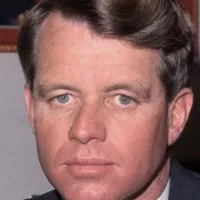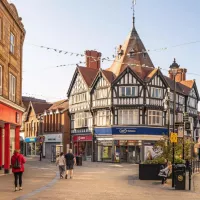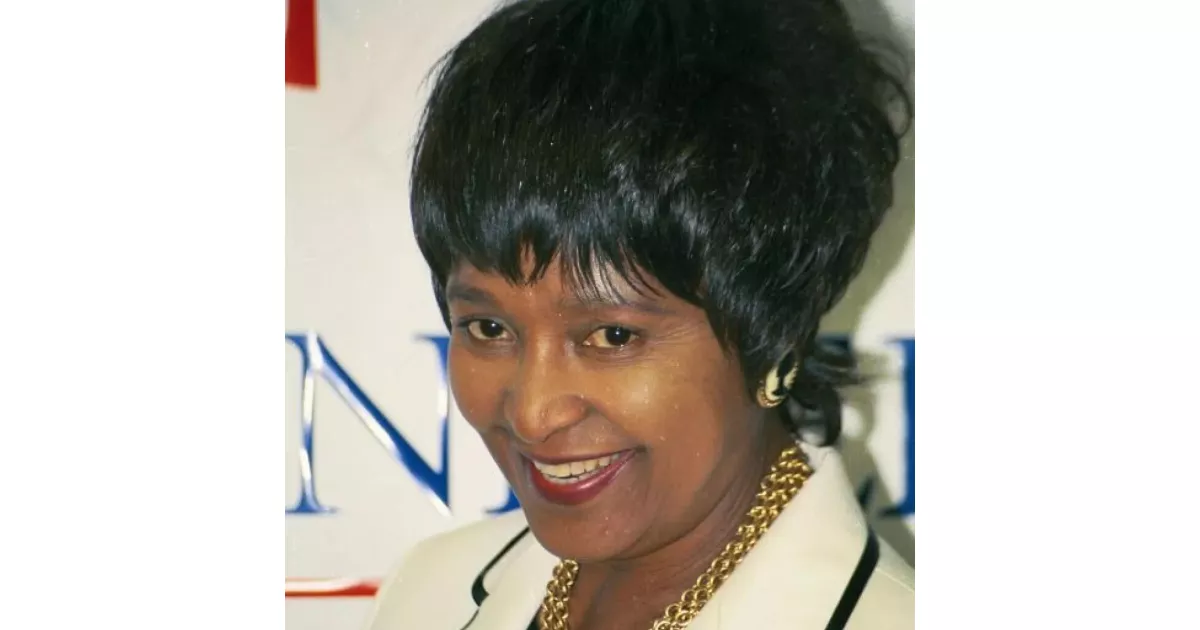Winnie Madikizela-Mandela was a prominent South African anti-apartheid activist and politician. As the second wife of Nelson Mandela, she played a significant role in the fight against apartheid. Known as the "Mother of the Nation," she served as a Member of Parliament, deputy minister of arts and culture, and a key figure in the African National Congress (ANC). Her leadership extended to the ANC's National Executive Committee and the Women's League.
September 1936: Birth of Winnie Madikizela-Mandela
Winnie Madikizela-Mandela was born Nomzamo Winifred Zanyiwe Madikizela in September 1936.
1956: Winnie Madikizela-Mandela Earns a Degree in Social Work
Winnie Madikizela-Mandela earned her degree in social work from the Jan Hofmeyr School of Social Work in 1956.
1957: Winnie Madikizela Meets Nelson Mandela
Winnie Madikizela first met Nelson Mandela in 1957.
1958: Marriage to Nelson Mandela
Winnie Madikizela married Nelson Mandela in Johannesburg in 1958.
1960: Birth of Zindziswa Mandela
Zindziswa Mandela, the second daughter of Nelson and Winnie Mandela, was born in 1960.
1963: Nelson Mandela's Imprisonment and Winnie's Rise as a Public Figure
Following Nelson Mandela's imprisonment in 1963, Winnie Madikizela-Mandela became a prominent figure in the anti-apartheid movement.
May 1969: Winnie Madikizela-Mandela's Imprisonment and Torture
Winnie Madikizela-Mandela endured a 491-day imprisonment starting in May 1969, during which she was subjected to torture, beatings, and solitary confinement.
1977: Winnie Madikizela-Mandela's Banishment to Brandfort
Winnie Madikizela-Mandela was banished to the town of Brandfort in 1977.
1985: Winnie Madikizela-Mandela's Return to Soweto and Involvement with Mandela United Football Club
Winnie Madikizela-Mandela returned to Soweto in 1985 and became involved with the Mandela United Football Club, which later faced accusations of violence and human rights abuses.
1985: Winnie Madikizela-Mandela's Banishment Ends
Winnie Madikizela-Mandela's banishment to Brandfort ended in 1985.
1985: Robert F. Kennedy Human Rights Award
Winnie Mandela, along with Allan Boesak and Beyers Naudé, were honored with the Robert F. Kennedy Human Rights Award in 1985 for their significant contributions to human rights in South Africa.
April 1986: Winnie Madikizela-Mandela's Controversial Speech and Accusations
On April 1986, Winnie Madikizela-Mandela delivered a controversial speech in Munsieville where she endorsed necklacing.
1987: Portrayal by Alfre Woodard in "Mandela"
Alfre Woodard portrayed Winnie Mandela in the 1987 HBO TV movie "Mandela", earning her a CableACE Award and an NAACP Image Award.
November 1988: Disappearance of Lolo Sono and Siboniso Shabalala
In November 1988, Lolo Sono and Siboniso Shabalala disappeared, with Sono's father claiming to have seen his son, badly beaten, in a vehicle with Madikizela-Mandela. Sono's mother alleged that Madikizela-Mandela had accused her son of being a spy.
December 1988: Abduction of James Seipei and Three Others
In December 1988, Jerry Richardson, coach of the Mandela United Football Club, abducted 14-year-old James Seipei and three other youths. Richardson claimed he acted on Madikizela-Mandela's orders, who suspected the youths' guardian of sexual abuse, an allegation later found to be baseless.
1988: TRC Finds Madikizela-Mandela Responsible for Disappearances
In its 1998 report, the Truth and Reconciliation Commission (TRC) found Winnie Madikizela-Mandela responsible for the disappearances of Lolo Sono and Siboniso Shabalala in 1988.
1988: Winnie Madikizela-Mandela's Home Burned
Winnie Madikizela-Mandela's home in Soweto was burned down by high school students in 1988.
1988: Candace Award for Distinguished Service
Winnie Mandela received the Candace Award for Distinguished Service from the National Coalition of 100 Black Women in 1988, recognizing her impactful work and leadership.
January 1989: Murder of Abu Baker Asvat
Abu Baker Asvat, a prominent Soweto doctor and friend of the Mandela family, was murdered in January 1989. Asvat had treated James Seipei at Madikizela-Mandela's home after his abduction.
January 1989: Discovery of James Seipei's Body
The body of 14-year-old James Seipei, who had been abducted from his home along with three other youths, was found in a field in January 1989. He had been stabbed to death.
1989: Winnie Madikizela-Mandela Disavowed by Anti-Apartheid Groups
Winnie Madikizela-Mandela was disavowed by anti-apartheid groups, including the UDF and ANC, in 1989 due to her association with the Mandela United Football Club and its alleged human rights violations.
February 1990: Nelson Mandela's Release from Prison
Nelson Mandela was released from prison in February 1990 after 27 years of incarceration.
February 1990: Nelson Mandela's Release and Public Appearance
Winnie Madikizela-Mandela appeared alongside her husband, Nelson Mandela, when he was released from prison in February 1990. This marked their first public appearance together in nearly 30 years.
1990: Nelson Mandela's Release from Prison
Nelson Mandela was released from prison in 1990 after 27 years.
1991: Acquittal and Reduced Sentence in Seipei Case
In 1991, Madikizela-Mandela was acquitted of all charges except for the kidnapping of James Seipei. Her six-year jail sentence for the kidnapping was later reduced to a fine on appeal. A key witness in the case, Katiza Cebekhulu, had been abducted and tortured before the trial to prevent his testimony against her.
April 1992: Separation from Nelson Mandela
Winnie and Nelson Mandela separated in April 1992 after 38 years of marriage, amidst rumors of infidelity.
1992: Accusations of Ordering Asvat's Murder
In 1992, Madikizela-Mandela was accused of ordering the murder of Abu Baker Asvat.
1992: Separation of Nelson and Winnie Mandela
Nelson Mandela and Winnie Madikizela-Mandela separated in 1992.
December 1993: Elected President of the ANC Women's League
In December 1993, Winnie Madikizela-Mandela was elected president of the ANC Women's League, reflecting her popularity among ANC supporters.
May 1994: Appointment as Deputy Minister and Subsequent Dismissal
In May 1994, Madikizela-Mandela was appointed Deputy Minister of Arts, Culture, Science and Technology in the newly formed government following South Africa's first non-racial elections. She was dismissed from her position 11 months later due to allegations of corruption.
1994: Winnie Madikizela-Mandela's Stance on Reconciliation
In a 1994 interview, Winnie Madikizela-Mandela discussed the possibility of reconciliation and asserted that she was not seeking to be the "First Lady" of South Africa.
1994: Winnie Madikizela-Mandela Serves as a Member of Parliament and Deputy Minister of Arts and Culture
Winnie Madikizela-Mandela served as a Member of Parliament and as the Deputy Minister of Arts and Culture in 1994.
1995: Resignations from ANC Women's League
In 1995, members of the National Executive Committee of the ANC Women's League resigned, reportedly because they viewed Winnie Madikizela-Mandela as a "criminal". This event was highlighted during her funeral in 2018.
March 1996: Divorce of Nelson and Winnie Mandela
Nelson Mandela and Winnie Madikizela-Mandela finalized their divorce in March 1996 after a period of separation.
March 1996: Divorce from Nelson Mandela and Name Change
Winnie and Nelson Mandela finalized their divorce in March 1996. She then adopted the surname "Madikizela-Mandela".
1996: Winnie Madikizela-Mandela's Tenure as Deputy Minister of Arts and Culture Ends
Winnie Madikizela-Mandela's time as the Deputy Minister of Arts and Culture concluded in 1996.
April 1997: Re-elected President of the ANC Women's League
In April 1997, Winnie Madikizela-Mandela was re-elected as president of the ANC Women's League.
December 1997: Appearance before the Truth and Reconciliation Commission
In December 1997, Winnie Madikizela-Mandela appeared before the Truth and Reconciliation Commission, where she acknowledged that "things went horribly wrong" during the anti-apartheid struggle.
1997: TRC Hearings on Asvat Murder
Madikizela-Mandela's alleged role in Asvat's murder was investigated by the Truth and Reconciliation Commission (TRC) in 1997. The hearings were adjourned amid claims of witness intimidation by Madikizela-Mandela's supporters.
1997: Portrayal by Tina Lifford in "Mandela and de Klerk"
Tina Lifford portrayed Winnie Madikizela-Mandela in the 1997 TV film "Mandela and de Klerk".
1998: TRC Findings on Human Rights Violations
The final report of the TRC in 1998 found Madikizela-Mandela "politically and morally accountable" for human rights violations committed by the Mandela United Football Club. The TRC also found her responsible for the abduction and assaults on Stompie Seipei, and for attempts to cover up his death. She was also found responsible for the 1988 disappearance of Lolo Sono and Siboniso Shabalala.
2002: Found Guilty of Financial Misconduct
In 2002, a Parliamentary ethics committee found Winnie Madikizela-Mandela guilty of failing to disclose donations and financial interests.
April 2003: Convicted of Fraud and Theft
On April 24, 2003, Winnie Madikizela-Mandela was convicted on charges of fraud and theft related to a funeral fund, leading to her resignation from leadership positions in the ANC.
2003: Offered to Act as a Human Shield and Defused Hostage Situation
In 2003, Winnie Madikizela-Mandela offered to act as a human shield during the invasion of Iraq and helped defuse a hostage situation at Wits University.
2003: Ordered to Account for Absences from Parliament
In 2003, Winnie Madikizela-Mandela was ordered by Parliament to account for her frequent absences.
2003: Winnie Madikizela-Mandela Convicted of Theft and Fraud
Winnie Madikizela-Mandela was convicted of theft and fraud in 2003, leading to her temporary withdrawal from politics.
July 2004: Conviction Partially Overturned on Appeal
In July 2004, an appeal judge overturned Winnie Madikizela-Mandela's theft conviction but upheld the fraud conviction, resulting in a suspended sentence.
December 2007: Top Vote-Getter in ANC National Executive Committee Election
Winnie Madikizela-Mandela received the most votes in the ANC National Executive Committee election in December 2007.
2007: Opera Based on Her Life, "The Passion of Winnie"
An opera titled "The Passion of Winnie", based on the life of Winnie Madikizela-Mandela, was produced in Canada in 2007. However, she was denied a visa to attend its premiere.
June 2008: Criticized Anti-Immigrant Violence and Offered Support to Victims
In June 2008, Winnie Madikizela-Mandela criticized the anti-immigrant violence in South Africa, blaming the government's housing policies, and offered support to victims.
October 2008: Thabo Mbeki's Letter Regarding the Mandelas
In October 2008, Thabo Mbeki wrote a letter referencing the symbolic roles of Nelson and Winnie Mandela in the context of apartheid's brutality.
2009: Winnie Madikizela-Mandela Returns as Member of Parliament
Winnie Madikizela-Mandela returned to her role as a Member of Parliament in 2009.
2009: Secured Fifth Place on ANC Electoral List
Winnie Madikizela-Mandela was placed fifth on the ANC's electoral list for the 2009 general election.
January 2010: Portrayal by Sophie Okonedo in "Mrs Mandela"
Sophie Okonedo played Winnie Madikizela-Mandela in the BBC drama "Mrs Mandela", which premiered on BBC Four in January 2010.
March 2010: Statement Denying Interview Claims
In March 2010, after facing backlash for her comments, a statement was issued on behalf of Winnie Madikizela-Mandela, claiming that the interview with Nadira Naipaul was a fabrication.
2010: Controversial Interview with Nadira Naipaul
In 2010, Winnie Madikizela-Mandela gave a controversial interview where she criticized Nelson Mandela, leading to public criticism and a statement from her claiming the interview was fabricated.
September 2011: Portrayal by Jennifer Hudson in "Winnie Mandela"
Jennifer Hudson played Winnie Madikizela-Mandela in the film "Winnie Mandela", directed by Darrell Roodt and released in September 2011, which sparked controversy over the casting of a foreign actor.
2013: Discovery of Sono and Shabalala's Remains
In 2013, the bodies of Sono and Shabalala were exhumed from unmarked graves, revealing they had been stabbed to death shortly after their abduction in 1988.
2013: Portrayal by Naomie Harris in "Mandela: Long Walk to Freedom"
Naomie Harris portrayed Winnie Madikizela-Mandela in the 2013 film "Mandela: Long Walk to Freedom". Madikizela-Mandela herself praised Harris's performance for accurately capturing her story.
2016: Winnie Madikizela-Mandela's Case Dismissed by the Mthatha High Court
The Mthatha High Court dismissed Winnie Madikizela-Mandela's case regarding Nelson Mandela's homestead in 2016.
2017: Documentary Allegations and Denials
A 2017 documentary about Madikizela-Mandela included allegations by former police officer Henk Heslinga that he had been instructed to reopen investigations into Seipei's death and other cases against Madikizela-Mandela. Heslinga claimed that Jerry Richardson admitted to killing Seipei. These allegations were denied by former safety minister Sydney Mufamadi and were met with criticism for their timing and lack of context.
January 2018: Calls for Renewed Investigation
In January 2018, Mandla Mandela, Nelson Mandela's grandson, called for a new investigation into Madikizela-Mandela's role in the deaths of Asvat and Seipei.
January 2018: Winnie Madikizela-Mandela's Legal Battle for Nelson Mandela's Homestead
In January 2018, Winnie Madikizela-Mandela was reportedly preparing to appeal to the Constitutional Court for the ownership of Nelson Mandela's homestead in Qunu.
January 2018: Honorary Doctor of Laws Degree
Makerere University in Kampala, Uganda, bestowed an honorary Doctor of Laws (LLD) degree upon Winnie Nomzamo Madikizela-Mandela in January 2018. This prestigious recognition celebrated her lifelong dedication to fighting apartheid in South Africa.
April 2018: Seipei's Mother Expresses Forgiveness
Joyce Seipei, mother of James Seipei, publicly stated that she did not believe Winnie Madikizela-Mandela was involved in her son's murder and that she had forgiven her. She revealed that Madikizela-Mandela had offered her financial support and had expressed remorse during the TRC hearings.
April 2018: Death of Winnie Madikizela-Mandela
Winnie Madikizela-Mandela passed away at the age of 81 on April 2, 2018, in Johannesburg, after battling diabetes and undergoing multiple surgeries.
April 2018: Special Official Funeral
Winnie Madikizela-Mandela was honored with a "Special Official Funeral" by the South African government in April 2018, with a public service held at Orlando Stadium.
October 2018: Biography Implicates Madikizela-Mandela
A new biography of Madikizela-Mandela released in October 2018 concluded that she was responsible for Asvat's murder.
2021: Renaming of Mbizana Local Municipality and Brandfort
In 2021, South Africa paid tribute to Winnie Madikizela-Mandela by renaming the Mbizana Local Municipality in the Eastern Cape to Winnie Madikizela-Mandela Local Municipality. Additionally, the town of Brandfort in the Free State was officially renamed Winnie Mandela, solidifying her legacy in the nation's history.
2022: Renaming of Olifantsfontein Road
The City of Ekurhuleni in Gauteng renamed a section of the R562 road connecting Midrand with Olifantsfontein in 2022. Formerly known as Olifantsfontein Road, it was renamed Winnie Madikizela-Mandela Road, further honoring her impact and memory.
Mentioned in this timeline
Home Box Office HBO is an American pay television service...
Africa is the second-largest and second-most populous continent comprising of...
Iraq officially the Republic of Iraq is a West Asian...

Football is a family of team sports primarily involving kicking...

Robert F Kennedy RFK was a prominent American politician and...
Canada is a North American country the second largest in...
Trending

15 days ago Ryan Gosling's Star Wars: Starfighter avoids Skywalker Saga themes with new composer and changes.

Bill Clinton the nd U S President - served as Arkansas's Attorney General - and Governor - - A Democrat...

8 months ago Protests Erupt at Elise Stefanik's Saratoga County GOP Fundraiser in Halfmoon
5 months ago TJ Watt becomes highest-paid non-QB after extension; JJ Watt reacts hilariously.

2 months ago Upstart's Q3 Earnings: Mixed Results, Soft Q4 Guidance, and Stock Slides After Announcement.

7 months ago Wrexham Targets Premier League Stars Amid Championship Push Transfer Rumors
Popular

Candace Owens is an American conservative political commentator and author...

Tucker Carlson is an American conservative political commentator known for...

XXXTentacion born Jahseh Dwayne Ricardo Onfroy was a controversial yet...

Ilhan Omar is an American politician currently serving as the...

Kashyap Pramod Patel is an American lawyer who became the...

Bill Gates an American businessman and philanthropist revolutionized personal computing...
